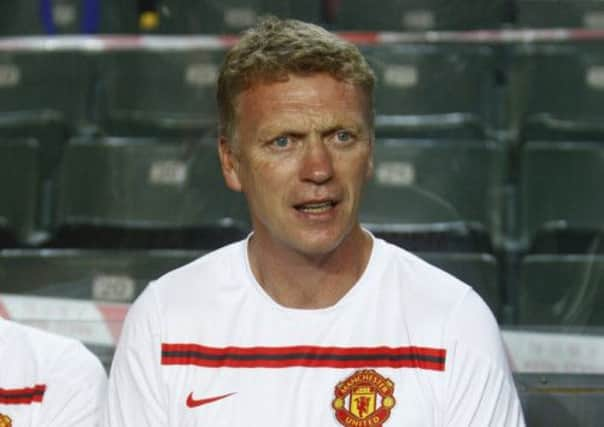David Moyes’ hunger marked him out for United


The new Manchester United manager has no such money concerns now. But at the time he had just taken over as Preston manager after a career in the lower leagues and simply did not have the resources for the expedition. The PFA did help him out, yet the Scot still ended up sleeping in his car as he travelled across France.
It is a fascinating insight, given during an interview this week in Hong Kong, and helps underline why Sir Alex Ferguson had no doubt Moyes was the right man to succeed him when he stepped down as Manchester United manager in May.
Advertisement
Hide AdAdvertisement
Hide Ad“I wasn’t earning enough at the time but I was given some funding,” said Moyes. “I hired a small car. In the end I drove round and had to sleep in the car a few nights.
“But I wanted to try and learn. I watched Craig Brown. I sat in the stand and watched him taking the sessions for Scotland. When I was younger I went to see AC Milan train. That is the kind of thing I did to try and find some more knowledge.”
There is a story behind that AC Milan experience. After defeat at Goodison Park in 2011, Carlo Ancelotti – Milan coach at the time of Moyes’ visit – was unceremoniously sacked by Chelsea before he even got on the team bus to leave the ground.
“Carlo was in the corridor,” recalled Moyes. “I saw him and stood and talked to him. He said ‘I have lost my job and David, I am going to come and watch you training now’. It showed me even he had recognised I had been at training at AC Milan at that time. I took what he said as a big compliment.”
Much earlier, as a player at Dunfermline, Moyes used to drive into England on his day off to take in a game, learning about coaching and tactical methods that led him to spend 11 successful years at Everton before moving onto, arguably, the biggest club job in Europe.
“I was always thinking about being involved in football,” said Moyes of those early days. His ascent was gradual. “Mine had to be a long, slow progression and, hopefully, improvement.”
But to watch him set up and then run a training session is to experience a man in an environment he adores. The buzz is obvious, both to players and detached observers. And that, for all the other demands of his role, is the core of Moyes’ job and why the Scot should be given a chance to succeed at Old Trafford, rather than be leapt on at the first sign of trouble.
In an era when sackings occur as a matter of routine – and Blackburn managed to go through four bosses in a single season – Gary Neville described Moyes’ appointment as a “result for sanity”.
Advertisement
Hide AdAdvertisement
Hide Ad“I hope there was a little bit of commonsense in the decision,” said Moyes, whose team won 5-2 against Kitchee FC yesterday.
“Manchester United have always tended to choose slightly differently than other clubs. They always look for longevity and stability. They are not a club that chops and changes its manager regularly. For that reason, it was more pleasing when I got offered the job because you know they are a club that is looking for someone who tends to stay around for quite a while.”
Yet such calmness is easy when your manager has been winning trophies for 26 years. Moyes has no such safety net. In charge for less than a month, he has not even met some of his players yet (Javier Hernandez and Antonio Valencia). And there is over a month left until the transfer window closes.
Yet some United fans have shown their impatience already, questioning the lack of new arrivals. “You hope there is a little bit of sense and people understand where you are going,” said Moyes. “It is a big job. It is a new job. It will take time, as it would for anybody else.”